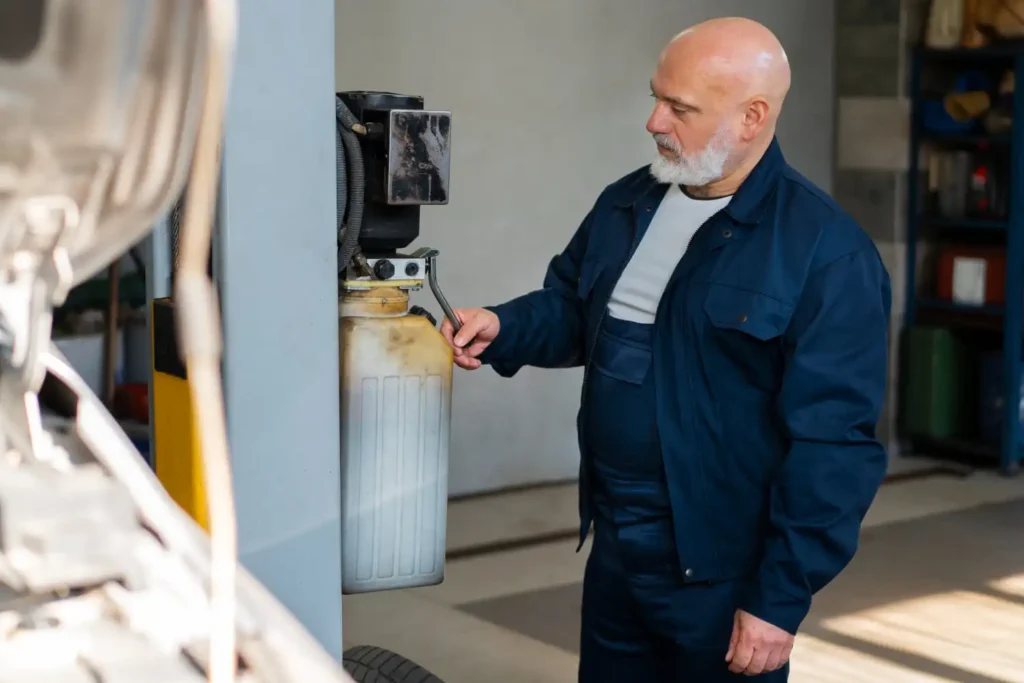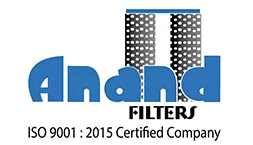
Selecting the Right Filter for Compressor Systems: Oil-Free vs Oil-Injected Screw Compressors & Separator Technology
Effective, long-lasting compressor performance depends mainly on proper filtration. To keep impurities such as dust, oil particles, and moisture out of critical components, a compressor air filter system is essential. Moreover, maintaining a higher standard of compressed air quality contributes to a high level of protection for machinery and finished products.
Poor filtration contributes not only to deteriorating air quality but also to reduced compressor life, increased downtime, and lower energy efficiency. The proper design of industrial compressor filters ensures safe, effective, and clean operation in applications where reliability is paramount.
Understanding Compressor Types: Oil-Free vs Oil-Injected Screw Compressors
It is crucial to understand the differences between oil-free and oil-injected screw compressor types when choosing the best filter for compressor systems. Every design has different maintenance and filtration needs.
Oil-Free Screw Compressors:
The compressor filter on oil-free screw compressors is vital across different industries because it produces pure, oil-free air free of contaminants. It is imperative in processes in which a small amount of oil would compromise the quality and safety of the finished product.
Oil-free screw compressors are a popular choice because they eliminate the risk of oil contamination. During compression, oil lubricates, cools, and seals the components in a standard oil-injected compressor. Various filtration methods remove most of the oil, though small traces often remain. Many industries can live with this. However, even small amounts of this contamination may be harmful to sectors such as electronics, pharmaceuticals, and food and beverage.
Oil-free compressors eliminate this danger. They deliver 100 per cent oil-free compressed air by ensuring that no oil can enter the compression chamber, making them invaluable wherever air purity is essential.
Oil-Injected Screw Compressors:
An oil-injected screw compressor is a type of rotary compressor that compresses air using two helical screws that are engaged.
In contrast to conventional piston compressors, which derive their pressure from reciprocating motion, screw compressors operate continuously, making them well-suited for applications that require a constant supply of compressed air. The compressor is compact, well-designed, and widely used across other industries such as manufacturing, automotive, and construction.
Types of Filters Used in Compressor Systems
Different filtration stages are used in compressor systems to achieve optimal performance, air purity, and machine performance. Each type of filter serves a distinct purpose in protecting the components of your compressor.
Particulate filters: Designed to remove solid contaminants from compressed air (rust, dust, dirt, etc.). These filters commonly use a membrane that traps pollutants while allowing air to pass through. Particulate filters are widely used as the first stage of the filtration process to shield downstream machinery from contamination.
Coalescing filters: These filters are employed to eliminate liquid contaminants (water, oil aerosols, etc.) from the compressed air. The effect of these filters is to coalesce the tiny droplets in the air stream into a comparatively larger droplet, thereby eliminating them. These filters are essential, particularly in applications where the absence of moisture and oil may damage the product or worsen its quality.
Activated carbon filters: Activated carbon filters, which is also known as adsorption filters, which removes the harmful gases, vapors, odors, and chemical fumes from compressed air. Activated carbon is used in these filters to adsorb gaseous molecules, ensuring that the air is safe and pure. These filters are critical in industries such as food and beverage manufacturing.
What Is an Air Oil Separator and How It Works
Compressors and other industrial machinery are composed of components which work in harmony to achieve optimal results. One component that is less well known is the air-oil separator.
The oil separator filter for an oil-wetted air compressor, also known as an oil mist separator, serves as a barrier between the oil and the compressed air. Its main job is to clean the compressed air of dirt and oil aerosols, keeping all the air going to different parts clean.
Choosing the Right Filter for Compressor Systems
When selecting a filter for compressor systems, there has to be a balance between performance, air purity, and maintenance costs. The following is a list of essential things to consider:
Compressor Type: Depending on whether you use an oil-free or oil-injected screw compressor, filtration requirements differ. Oil-free compressors will require high-performance particle filters to reduce dust contamination, whereas oil-inject compressors will require effective air-oil separators.
Surrounding Conditions: Filters must be adequate for the environmental conditions in the plants. Strong media and heavy-duty compressor filters are best for humid or dusty conditions.
Media Quality and Micron Rating: Good quality and micron rating of filter media are essential to the efficiency of the installation, as effective filter media will achieve low pressure drop ratings, allowing fine synthetic or nanofiber filters to stop small particles.
Maintenance & Replacement Best Practices
The key to prolonging the life of your filter for compressor systems and guaranteeing continuous performance is proper maintenance.
User manual: It is advisable to read the user manual before using the equipment. Always follow the safety precautions and instructions.
Frequent examinations: To achieve the required efficiency, industrial compressor filters must undergo several interdependent processes. It consists of various parts which must be kept in reasonable condition throughout their running so that they may be efficient.
Cost savings: While maintaining the air compressor requires an initial investment of time and money, it yields significant savings. Reducing overall ownership costs results from extending equipment life, preventing significant malfunctions, and optimizing energy use.
Signs Your Filter Needs Replacement:
- Reduced airflow or a greater pressure drop
- Excessive oil spillage
- Unusual vibration or sound
- Temperature increase during discharge
Innovations in Separator & Filter Technology (2025 Trends)
In the future, filter designs for compressor systems will become increasingly intelligent and environmentally friendly.
Better materials and filter technology: This is the kind of innovation that reduces waste while improving the cleanliness of our air. Examples of these types of things are biodegradable type filters and filters composed of recycled materials.
Intelligent filter systems: Intelligent filter management systems have moved past basic monitoring. By 2025, devices with predictive analytics capabilities will automatically adjust filters in response to changes in air quality.
Emphasizing eco-friendly solutions: Sustainability remains a primary focus, and manufacturers are increasingly improving how filters are produced and disposed of. CFP leads the way in eco-friendly disposal solutions and ensures the safe, environmentally responsible handling of used compressor air filter systems.
Conclusion
Choosing the right filter for compressor systems is vital for maintaining system reliability, achieving energy efficiency, and saving costs over time. Understanding the differences between oil-free and oil-injected screw compressor systems helps one choose the appropriate filter media for their filtering needs.
You can protect your operations with high-quality industrial compressor filters, compressor oil separator filters, and air-oil separators to prevent costly breakdowns and maintain consistent air quality.
Trust Anand Filters to design and deliver a complete line of filtration solutions that are effective, long-lasting, and energy-efficient.

